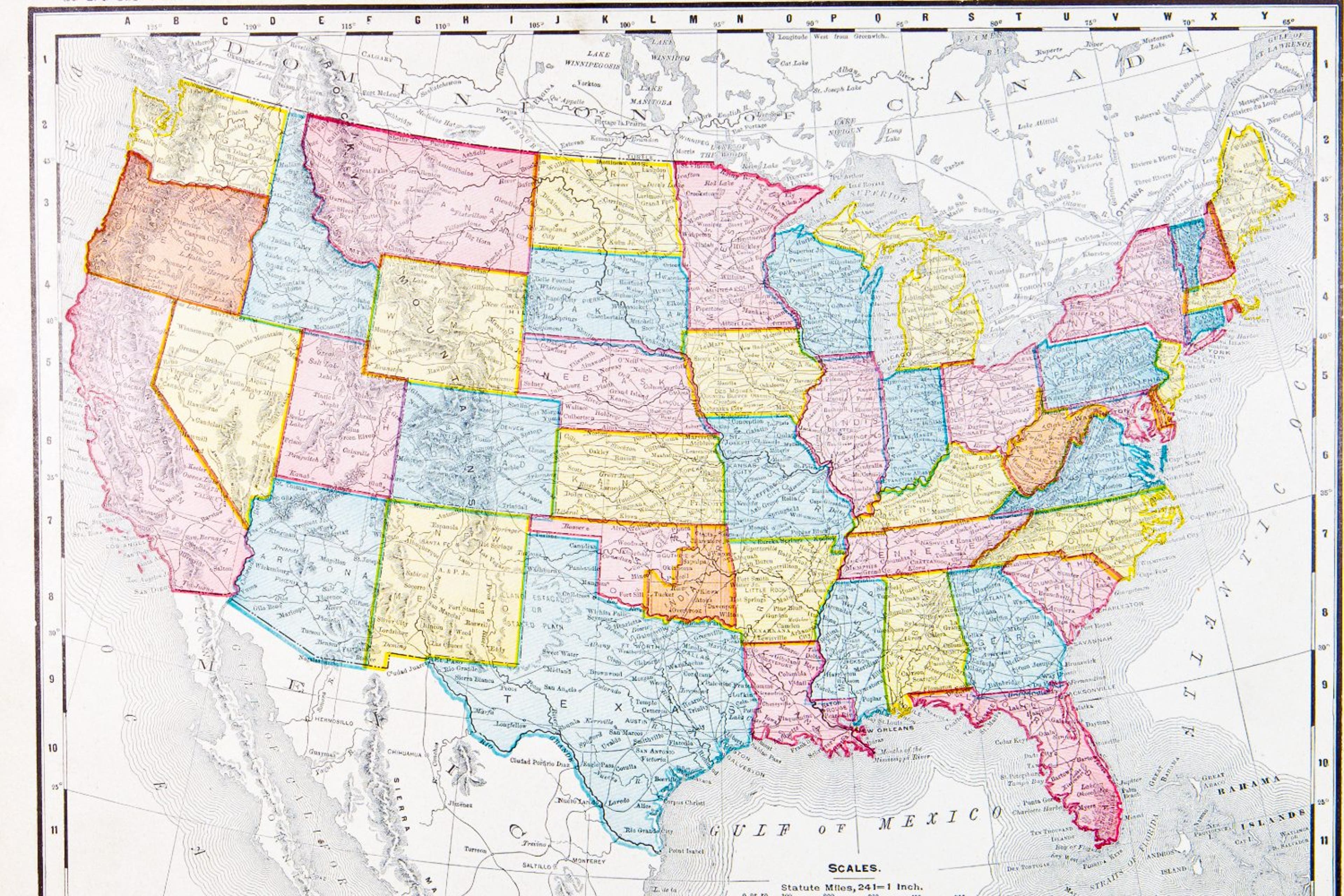Public policy differences between the U.S. Congress and state legislatures are routine, especially with debates on digital policy. The latest example comes with U.S. Congress' proposed 10-year ban on enforcing state artificial intelligence laws, viewed by state lawmakers and enforcers as cutting into their respective authority and mission to serve their constituents.
The moratorium emerged from the U.S. House's budget reconciliation proposal in May and has withstood criticism and updates to reach a potential full Senate vote. The current iteration of the moratorium, characterized in the Senate bill as a "temporary pause," moves away from an outright ban and ties states' compliance to their right to access a federal funding pool for broad infrastructure improvements.
IAPP Managing Director, Washington, D.C., Cobun Zweifel-Keegan, CIPP/US, CIPM, redlined the latest changes to the provision, which is still receiving bipartisan opposition in the Senate despite momentum toward inclusion in the final bill text. The Senate bill will require concurrence back in the House, where opposition now exists after the lower chamber's initial approval of the AI provision.
According to Politico, the Senate parliamentarian is asking the Senate Committee on Commerce, Science and Transportation to clarify the exact nature of the broadband funding tie before the provision can move forward. Confusion exists as to whether noncompliance would prohibit access to the full USD42 billion fund or a USD500 million allocation, with the former scenario likely to add to existing Senate Republican opposition.
The motivation behind the moratorium is clear: Avoid watering down a booming industry with fragmented regulation. U.S. Sen. Ted Cruz, R-Texas, has touted his AI proposal as necessary to support American leadership on AI innovation.
While Congress is focused on AI's potential, states are keeping consumer safety front and center.
States have been firm with their displeasure over the moratorium from the onset. State lawmakers and enforcers have sent multiple letters pleading their case against limiting states to establish AI governance requirements and mitigate harms that may crop up from AI development and use.
"There's nothing to fall back on. This moratorium actually reduces rights that people currently have," California Privacy Protection Agency Executive Director Tom Kemp told the IAPP. "We've always believed, whether it's AI, automated decision-making or privacy, there should be a high floor. But even then, there should be an ability for states to go over and beyond to best address the needs of their constituents."
In the latest opposition letter, Kemp joined six state attorneys general to reiterate to Senate leadership how the proposal does not benefit consumer protection. They claimed the ban would "create a regulatory vacuum that benefits AI developers at the expense of privacy rights" and AI-driven technology "demands the flexibility and responsiveness that only multi-level governance can provide."
Meanwhile, industry recognizes the appetite for firm guardrails, but largely views a potential state patchwork as unworkable.
OpenAI Associate General Counsel for AI Policy and Regulation Ben Rossen, CIPP/US, said the state patchwork on comprehensive privacy law is "not ideal" but has become "manageable" due to aligned concepts and provisions. However, he indicated the many interpretations of AI across state lines might not yield the same sense of harmonization.
"The AI moratorium is actually a fascinating thing," Rossen said at the IAPP and Berkman Klein Center For Internet and Society's Digital Policy Leadership Retreat 2025. "More than 1,000 bills have been proposed on AI in the past six months. Some of them really do kind of regulate these sort of fundamental national security questions. ... But a state-level patchwork of all these frontier (AI) regulations would also be really damaging."
The laboratories of democracy
State lawmakers are singing a consumer-focused refrain in their opposition to the moratorium.
In a 3 June letter to Congress, lawmakers harped on needing the ability and runway to support consumer concerns and risks. They wrote, "AI will raise some of the most important public policy questions of our time, and it is critical that state policymakers maintain the ability to respond."
The letter also covered how states can be "more nimble in their response" to AI than Congress and a moratorium in this moment would "would freeze policy innovation in developing the best practices for AI governance at a time when experimentation is vital."
"Over the past several years, states across the country have enacted AI-related laws increasing consumer transparency, setting rules for the government acquisition of new technology, protecting patients in our health care system, and defending artists and creators," lawmakers wrote.
In prior remarks to the IAPP on the passing of the Texas Responsible Artificial Intelligence Governance Act, state Rep. Giovanni Capriglione, R-Texas, raised similar flags spelled out in the letter. He argued the vague and proscriptive nature of the current provision is not workable while Congress does not currently have an immediate federal fallback if issues arise in the next 10 years.
"I appreciate all the federal government does. However, they have not really been able to work on super complicated, technical things like this for a long time and actually get them passed," Capriglione said. "I would make the case (Congress) is still quite a ways away from having something in place that will sufficiently protect my constituents here in the state of Texas."
Hall Estill Partner Collin Walke served as Democrat member of the Oklahoma House from 2016-22, spearheading the state legislature's comprehensive privacy law efforts over multiple years. A common refrain in his side of debates was Oklahoma needed to act because Congress was not, an argument he insists is resurfacing here.
"It's astounding that the federal government would prohibit states from taking up important issues affecting their citizens," Walke told the IAPP. "We elect our officials to solve problems. If our federal delegation is unwilling to act, the states absolutely must."
There is a difference between an attempt to harmonize approaches versus the objective of the moratorium, according to Center for Democracy and Technology CEO Alexandra Reeve Givens. She told IAPP-Berkman Klein Center retreat attendees that the proposed ban can be viewed as 10-year "free pass" and supports state legislators fighting back.
"You can't deny the rights of different jurisdictions, whether regulatory agencies or, in this case, states, to do their jobs and protect their citizens if people at the federal or harmonized level aren't doing so," she said.
Privacy laws looped in?
State Rep. Steve Elkins, D-Minn., told the IAPP that Minnesota has AI-focused laws concerning deepfakes in elections and revenge porn that would clearly be paused under the moratorium. Minnesota's comprehensive privacy law, which Elkins authored and takes force 31 July, might also be a casualty based on its AI ties in definitions and provisions for "profiling" and "legally consequential decisions."
"These provisions would probably be preempted even though the words 'artificial intelligence' are nowhere to be found in these provisions," Elkins said. "I think it's silly to try to define AI for this use case. There is a continuum of mathematical prediction techniques used to "profile" consumers, ranging from regression analysis to neural networks. Even within the neural network family of techniques there is a continuum with respect to transparency. No judge or jury will ever be able to find that boundary."
Unlike Elkins, Walke does not envision existing state privacy laws getting swept up in the budget provision.
"That would be a big legal fight given the number of states that have enacted such legislation," he told the IAPP. "And there's the fact that most companies are already able to comply with the data privacy laws on the books, so there is no longer a reason to push back."
Walke added the legal battles are likely to come from states with a "heavy technological presence" while others have "little incentive" to challenge because AI is not a legislative priority for them.
Joe Duball is the news editor for the IAPP.

